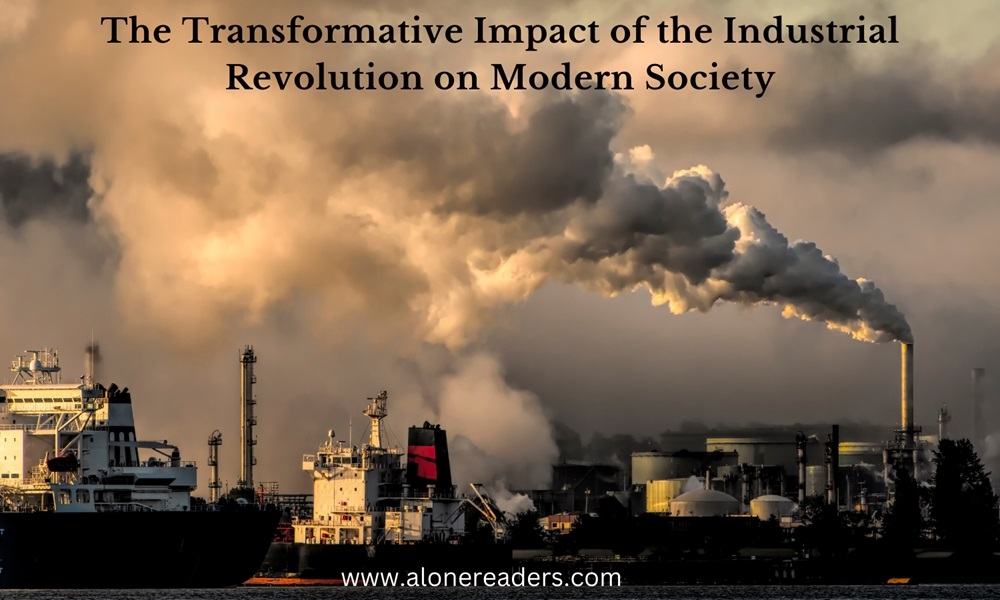
The Industrial Revolution, a period of significant industrialization from the late 18th to the early 19th century, stands as one of the most influential epochs in human history. Its profound impact on the fabric of society has irrevocably altered the course of human progress, laying the groundwork for the modern world we live in today.
This transformative era began in Great Britain and swiftly spread across the world, ushering in a wave of technological innovation and industrial growth. The hallmark of this period was the shift from manual labor and animal-based economies to machine-driven production. This transition was not just a mere change in production techniques but a complete overhaul of societal structures, economic systems, and cultural norms.
One of the most significant developments of the Industrial Revolution was the rise of mechanized manufacturing. The introduction of machines like the spinning jenny, the power loom, and the steam engine revolutionized textile production, a leading industry at the time. These machines increased production capacity exponentially while reducing the need for skilled labor. This mechanization extended to other sectors, including agriculture, where inventions like the mechanical reaper and the threshing machine transformed farming practices.
The steam engine, invented by James Watt, was a cornerstone of this era. It not only enhanced manufacturing but also revolutionized transportation. Steam-powered trains and ships reduced travel and shipping times dramatically, facilitating faster movement of goods and people. This development expanded markets and paved the way for global trade, sowing the seeds for the interconnected world economy we see today.
With industrialization came urbanization. People flocked to cities in search of work in factories, leading to a demographic shift and the expansion of urban areas. This migration was a double-edged sword; while it provided employment opportunities, it also led to overcrowded cities, poor living conditions, and health challenges. The burgeoning urban centers became melting pots of culture and ideas but also highlighted the need for urban planning and public health initiatives.
The social fabric of society was altered as well. The rise of a factory-based economy led to the emergence of distinct social classes, notably the industrial working class and the industrial capitalists. This stratification brought about significant social and political changes, including labor movements and calls for workers' rights, which were largely unheard of in the pre-industrial era.
The Industrial Revolution also had far-reaching effects on the environment. The increased reliance on fossil fuels like coal and the expansion of industrial activity contributed to environmental degradation. This period laid the groundwork for many of the environmental challenges we face today, such as pollution and climate change, highlighting the importance of sustainable practices.
Innovation during the Industrial Revolution wasn't limited to mechanical inventions. There were significant advancements in science and medicine, with discoveries that revolutionized healthcare. For instance, the development of vaccines and improvements in surgical techniques drastically improved life expectancy and quality of life.
Education and literacy rates improved as well, driven by a need for a more educated workforce and facilitated by the printing press, which made books and newspapers more accessible. This democratization of knowledge played a crucial role in fostering an informed citizenry capable of participating in democratic processes.
The cultural implications of the Industrial Revolution were profound. It inspired a new wave of art and literature that reflected the changing times. Writers and artists grappled with the consequences of industrialization, often critiquing the loss of traditional ways of life and the alienation wrought by mechanization.
In conclusion, the Industrial Revolution was a watershed moment in human history. It was not just a period of technological and industrial advancements but a fundamental transformation of society. It reshaped economies, social structures, and cultural norms, setting the stage for the modern world. Its legacy is a testament to human ingenuity and adaptability, but it also serves as a reminder of the ongoing challenges in balancing technological progress with social, environmental, and ethical considerations. As we continue to navigate the complexities of a rapidly changing world, the lessons of the Industrial Revolution remain more relevant than ever.